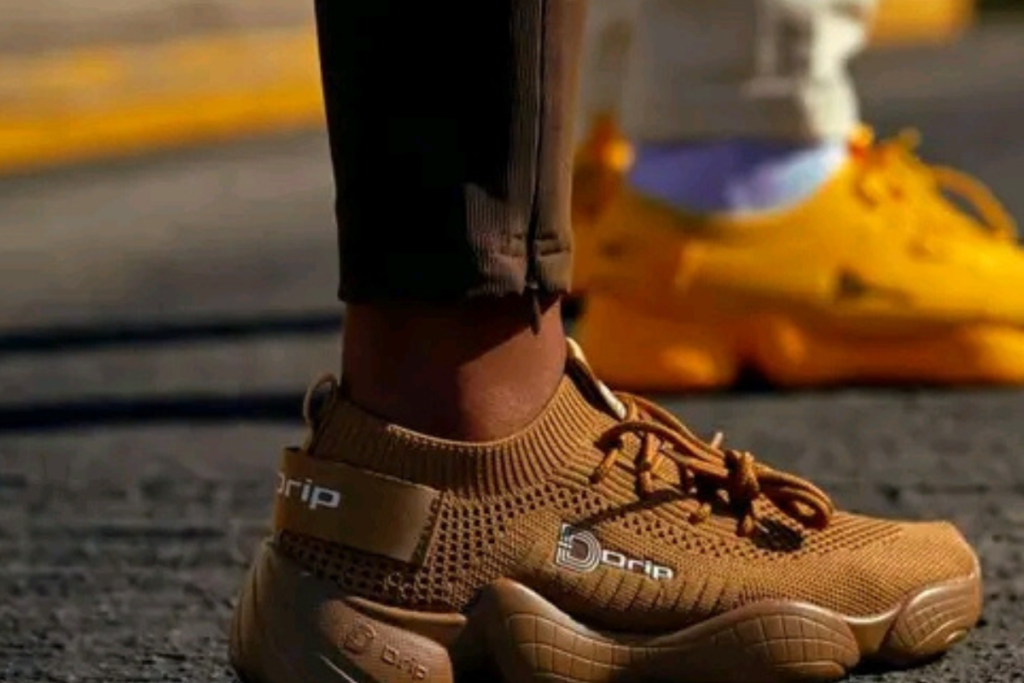By Charity Shezi
In a letter to its employees, dated 7 October 2024, a popular South African sneaker brand Drip Footwear announced that it has entered into liquidation, resulting in the closure of its remaining 14 stores and layoffs.
The liquidation comes after an order by the Johannesburg High Court after an earlier application by large, high-impact advertising company Wideopen Platform that claimed that Drip had failed to pay R20 million for advertising services rendered.
Founded by Lekau Sehoana in 2019, Drip set itself apart with its unique designs and local craftsmanship. The brand quickly gained market traction and loyalty among South Africans who wanted a fashionable local alternative. This locally produced footwear brand resonated within South African popular culture, celebrating individuality and authenticity.
According to the Mail and Guardian’s 200 Young South Africans awards profile, Sehoena crafted his first pair of sneakers out of recycled materials. The footwear designer would go on to create one of South Africa’s most recognisable lifestyle brands that employed over 300 people, had 25 physical location stores and had an expansive online store. At some point, Drip secured the 65th spot on Africa’s Top 100 most admired brands and placed second in South Africa.
With an NQF Level 3 in Civil Engineering from Ekurhuleni West College, Sehoana was seen as the embodiment of the South African entrepreneurial spirit of resilience, creativity and tenacity that marks so many small businesses that emerged from the humble beginnings of their black founders.
Quoted by Tshisa LIVE, he said one of the things that made Drip successful is his relateable story that South Africans connected with. He said Drip came after he failed for 16 years in his other small business ventures. “When I started Drip, I was still living in a shack. After building Drip, I didn’t have to do anything else. Drip was successful. I was able to build my mom a beautiful house. I wanted to get my family out of a shack and I did that.”
For a few years, the success story of Drip seemed inspiring, but it has ended sadly when the ship sank. Sehoana’s financial troubles also include a bitter divorce dispute with Lebogang Sehoana, which has been dragging on since 2022.
Married in 2018, the estranged wife claims that she had also funded Drip and is demanding a 50% stake in all her estranged husband’s assets. In a now viral Madam Speaker’s podcast interview, Lebogang broke her silence on her marriage and detailed the alleged abuse she claims she suffered during the marriage.
She claims that she was the sole breadwinner while Sehoana was unemployed, and she was the one who saw the opportunity for them to venture into various small businesses that included selling eggs and chicken, and operating a shisa nyama and property rental business. It was around this time that she claims Drip was founded. “As time went by, the business was growing. I bought a car for the business and that was when the downfall of our marriage started.”
Leboganag further claimed on the podcast that Sehoana said he was a powerful man with connections and that she must take whatever he was offering her.
A former Drip employee quoted by the City Press alleged that Sehoana’s failure to pay company debts and liquidation may be a deliberate attempt to prevent the wife from receiving 50% of the business in their divorce settlement, which she is demanding. The employee claims that Sehoana has been hiding assets from the wife, with plans to liquidate Drip and rebuild a new company.
While scandal and divorce are as entertaining prospects as the only reasons to bring a popular brand like Drip to its knees, economic factors may indicate otherwise. Retail is a volatile sector and emerging brands face a myriad challenges from their inception such as supply chain disruptions, ever-rising operational costs and competition in the lifestyle footwear market.
The global COVID-19 pandemic also impacted on retail businesses, as it led to a decrease in physical store foot traffic and shifts in consumer spending habits. All this may have affected Drip’s rise and expansion negatively, leading the brand to be another statistic in brands that struggled to adapt quickly to the new normal brought by the pandemic and the economic onslaught that crippled small businesses.
It may be a turbulent time for Drip, but its impact on the local fashion industry will long be celebrated for decades to come.


